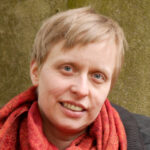Navigating the complex terrain of migrant and migrant-solidarity organising
How can we organise more strategically in our activism and movement building? This training offers a space to reflect on questions like: How do we move from short-term action toward long-term strategy? How can we shift from fragmented and isolated efforts to ecosystemic approaches and alliance-building? How do we organise in ways that resist cultures of burnout and avoid reproducing patterns of domination? How does our social positionality shape the ways we organise, and how skillfully can we engage with those dynamics?
We will explore these questions through a collective and participatory learning environment, with space to apply insights to our own individual and organisational contexts.
In the current crisis of neoliberal politics and economy, migration policies and border regimes are increasingly shaped by fear, othering, and scapegoating. Organising as migrants—or in solidarity with migrants—can feel especially depleting and disempowering. On top of this, we face familiar movement-wide challenges: internal fragmentation, short-term or project-based thinking, and the limitations of our theories of change.
This training is designed to help us navigate the complex terrain of migrant and migrant-solidarity organising, taking into account our distinct roles and experiences in relation to the nation-state and the emotions that often accompany this work.
We will unpack these dynamics and together, co-develop tools and strategies to engage with them more intentionally and sustainably.
Key topics:
There are many different ways of thinking about organising within the ‘social change’ paradigm. Some of the conceptions we will be exploring are:
Community Organising: Aiming to build power within communities, focusing on addressing local issues and injustices. It emphasises leadership development, relationship-building, and collective action rooted in everyday experience.
Transformative Organising: A more expansive approach to organising that seeks not only to address immediate issues but also to transform underlying systems of power and oppression, and the economic, political, and social structures that perpetuate the status quo and injustice. Early thinking on this practice has been defined by US-based organisers in “Demand Everything: Lessons from the Transformative Organising Model”. Applications to the European context and the learnings and adaptations of this approach to organising are illustrated in “The power of Organising: Stories from Community Organising Campaigns Across Europe”.
Movement Building: A broader approach that goes beyond specific campaigns or issues to build a sustained, interconnected ecosystem of organisations and networks working toward social transformation. Key aspects of Movement Building focus on developing shared visions and narratives, building alliances and networks between organisations, and creating responsive and agile structures that can adapt to changing contexts.
We will explore ideas and practices related to:
Theories of Change: How change happens in the world. Understanding systems and complexity as well as power and influence in today’s increasingly volatile and uncertain conditions. Exploring how individuals and organisations contribute to change.
Approaches to Organising: Looking at different traditions and practises from Community and Transformative Organising to Movement Building.
The Role of the Organiser: Reflections on identity, positionality and aspects of inhabiting the ‘role’, as well as sharpening practical skills and tools.
Alliance building: Effective Organising (of whatever kind) is most successful when performed in resilient alliances. This course will explore the pathways to building strategic, meaningful, empowering relationships.
Resilience: Looking at ways to manage stress and build wellbeing, and weather the impacts of repression and suppression, so that they don’t undermine our organising efforts.
So the aims of the training are to:
Who is it aimed at?
Anyone with experience in socially engaged action addressing political and social justice issues, specifically in the area of migration and border violence. We embrace a broad definition of activism, including: Resistance – action preventing further damage to ecosystems and social justice; Renewal – action focused on developing and creating alternatives for healthier societies and communities; and Building Resilience – action supporting increased resilience in communities to weather the uncertain times ahead.
The course will be delivered in accessible, international English.
In the solidarity economy:
(See details of our approach to radical economics here)
Contact us
to apply


Location:
Jeroen (he/him pronouns) has been involved in grassroots social movements for more than two decades now, starting back when he was fifteen. Throughout the years the fights for “climate justice” and “migrant justice” have been consistently on top of the list of struggles that make his heart beat faster. A key transformative moment for Jeroen was reading Paulo Freire’s Pedagogy of the Oppressed. Freire’s revolutionary pedagogy gave him a language to support the creation of emancipatory learning environments, rooted in a desire for collective liberation. Jeroen has also been exploring in depth Boal’s Theatre of the Oppressed and Joanna Macy’s The Work That Reconnects among other methodologies to build his trainer’s toolkit. Inspired by the liberatory possibilities of these traditions, he started an organization with a friend, LABO vzw, based in Belgium, where he has worked as a trainer and campaigner between 2013 and 2023.




Tools for effective and sustainable activism
–
new stories: different worlds
–
Knowledge, skills and perspectives to challenge oppression and create spaces of solidarity.
–
Tools for effective and sustainable activism
–
an introduction to a holistic and transformative approach to activist training and facilitation
–
Go to the people, learn from them. Live with them. Love them. Start with what they know. Build with what they have – Lao Tzu
–
Building facilitation capacity through participatory practices.
–
a space to think critically, to ask challenging and transformative questions, and find deeper inspiration and understanding to empower social change.
–
building and strengthening regenerative praxis for BIPOC organisers.
–
Ulex: del latín, (tojo en castellano, argelaga en catalán) nombre.
1. Arbusto espinoso de hoja perenne y floración, con gran capacidad de regeneración y resistencia. Sus púas se abren al entrar en contacto con el fuego y vuelve a brotar de los tocones carbonizados. Planta sucesional que crece bien en condiciones difíciles. Mejora la fertilidad del suelo mediante la fijación de nitrógeno, preparando el terreno para una renovada biodiversidad.
2. Una opción tradicional para encender fuegos. Arde con intensidad y brillo.
3. Un proyecto en red que aporta nutrición y fertilidad a los movimientos sociales europeos a través de la formación